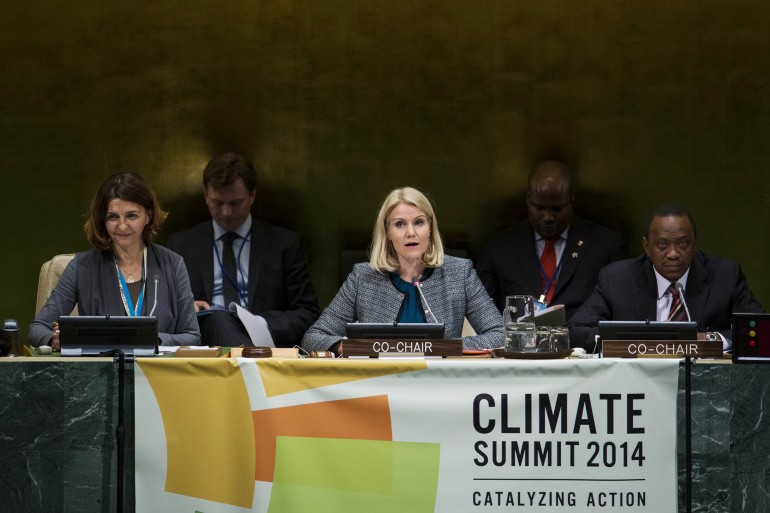
2014 UN Climate Summit in New York City
By Tricia Chan
Ontario’s Environmental Commissioner is disappointed with the federal government and its lack of leadership in global environmental issues.
Gord Miller’s annual report reflects many of the same key issues identified in the United Nation’s Global Biodiversity report released this week, particularly decreasing pollution and the need to protect ecosystems vulnerable to climate change.
Prime Minister Stephen Harper did not attend the UN Climate Summit in New York City last month, and between the alleged silencing of Canadian scientists and support for a fossil fuel economy, Miller said the country is losing its global position as an environmental leader.
“I’d much rather see Canada step up to a greater role in international diplomacy and agreements as we have done in the past with things like the Montreal Protocol on Ozone Depleting Substances and the subsequent but unrelated Montreal Agreement on Forest Management, the 1992 World Summit on Sustainable Development in Rio.” – Gord Miller
Federal Environment Minister Leona Aglukkaq told the House of Commons on Wednesday that Canada is working with the United States to solve the “North American problem” of greenhouse gas emissions and economies heavily dependent on oil and gas.
“We have international commitments with respect to climate and Canada’s north is profoundly being impacted by climate change,” said Miller. “We are, and are looked to as someone that the international community wants to be proactively involved in a leadership role, and we’re not providing that. We are gonna miss our targets and that’s disappointing.”
Under President Barack Obama, the U.S. is set to meet its 2020 goals of reducing carbon emissions.
The Harper government has touted its five per cent decrease in greenhouse gas emissions, but some studies suggest that decrease is mostly attributed to Ontario’s decision to reduce the operation of coal fired power plants.
Ontario is working on numerous environmental initiatives that fall in line with UN Biodiversity targets.
Miller, an independent watchdog appointed by the provincial government, is pushing to, among other initiatives, ban logging in Algonquin Park, reduce air pollution and preserve the integrity of the province’s ecosystem.
One of his greatest concerns is the use of neonicotinoids, or neonics for short. The chemical is used to treat seeds and it is as effective as an insecticide, and is having some adverse and unintended environmental effects.
“They are water soluble, that means they move into the soil and the surface water,” Miller said of the ecological damage neonics cause. “They are systemic. That means they are spread throughout the whole plant system, the whole plant exudes this thing.”
The issue expands to the animal kingdom and the decline in the bee population was the starting point in investigating the effects of neonics.
“They’re pervasive in the environment. They move in the environment and they are more persistent that they were supposed to be. They were supposed to break down quickly but we are finding that they are persisting for more than a year,” said Miller.
He also said it’s affecting the structure of the ecosystem and the transfer of energy up the food chain.
“Imagine our grocery stores without fruit?” asks Nudebee Honey Co.’s Ryan Thomas.
He and his partner Eddy Okun are distributors of local artisanal honeys. They have seen firsthand the struggle beekeepers are facing with the decline in their hives.
“Every environmental issue you care about when it comes to food ties into honey almost instantaneously,” said Thomas.
Okun would like to see neonics banned in Ontario, as they have in Europe.
“They’ve been banned for about 10 years now (in Europe), and the result has been good,” said Okun. “The result has been positive for bee populations there.”
Unfortunately, Miller doesn’t see a policy change anytime soon.
“Europe said there’s enough doubt here, we’re going to invoke some precautionary principles and put a moratorium on it while we do the science,” he said. “In North America we’re saying we’ve got to do the science before we prove there’s a problem.”

